|
Books Should Be Free Loyal Books Free Public Domain Audiobooks & eBook Downloads |
|
|
Books Should Be Free Loyal Books Free Public Domain Audiobooks & eBook Downloads |
|
Books on Politics |
|---|
|
Book type:
Sort by:
View by:
|
By: M. François Guizot (1787-1874) | |
|---|---|
 Memoirs To Illustrate The History Of My Time Volume 1
Memoirs To Illustrate The History Of My Time Volume 1
| |
By: United States Federal Bureau of Investigation | |
|---|---|
 Unidentified Flying Objects
Unidentified Flying Objects
Through the U.S. Freedom of Information Act (FOIA) this series of communications has been de-classified and made public. Most names have been omitted, however much information of the sightings of UFOs in 1947 can be gleaned from these communications which were primarily between the FBI and other U.S. Government and military organizations. | |
By: Benjamin Disraeli (1804-1881) | |
|---|---|
 Lord George Bentinck A Political Biography
Lord George Bentinck A Political Biography
| |
By: Annie Wood Besant (1847-1933) | |
|---|---|
 The Case for India
The Case for India
| |
By: Jacob A. Riis (1849-1914) | |
|---|---|
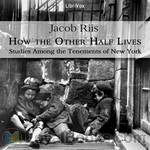 How the Other Half Lives: Studies Among the Tenements of New York
How the Other Half Lives: Studies Among the Tenements of New York
How the Other Half Lives: Studies Among the Tenements of New York (1890) was a pioneering work of photojournalism by Jacob Riis, documenting the squalid living conditions in New York City slums in the 1880s. It served as a basis for future muckraking journalism by exposing the slums to New York City’s upper and middle class. The title of the book is a reference to a phrase of François Rabelais, who wrote in Pantagruel: "one half of the world does not know how the other half lives". | |
By: John Addington Symonds (1840-1893) | |
|---|---|
 A Problem in Modern Ethics
A Problem in Modern Ethics
“Society lies under the spell of ancient terrorism and coagulated errors. Science is either wilfully hypocritical or radically misinformed.” John Addington Symonds struck many an heroic note in this courageous (albeit anonymously circulated) essay. He is a worthy Virgil guiding the reader through the Inferno of suffering which emerging medico-legal definitions of the sexually deviant were prepared to inflict on his century and on the one which followed. Symonds pleads for sane human values in... | |
By: Percy Fitzpatrick (1862-1931) | |
|---|---|
 The Transvaal from Within A Private Record of Public Affairs
The Transvaal from Within A Private Record of Public Affairs
| |
By: Johanna Brandt (1876-1964) | |
|---|---|
 The Petticoat Commando
The Petticoat Commando
In introducing the English version of this book I venture to bespeak a welcome for it, not only for the light which it throws on some little-known incidents of the South African war, but also because of the keen personal interest of the events recorded. It is more than a history. It is a dramatic picture of the hopes and fears, the devotion and bitterness with which some patriotic women in Pretoria watched and, as far as they could, took part in the war which was slowly drawing to its conclusion on the veld outside... | |
By: Clarence Darrow (1857-1938) | |
|---|---|
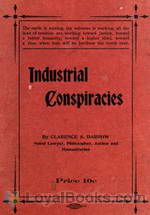 Industrial Conspiracies
Industrial Conspiracies
| |
By: Walter Bagehot (1826-1877) | |
|---|---|
 Physics and Politics, or, Thoughts on the application of the principles of "natural selection" and "inheritance" to political society
Physics and Politics, or, Thoughts on the application of the principles of "natural selection" and "inheritance" to political society
| |
By: John R. Lynch (1847-1939) | |
|---|---|
 The Facts of Reconstruction
The Facts of Reconstruction
After the American Civil War, John R. Lynch, who had been a slave in Mississippi, began his political career in 1869 by first becoming Justice of the Peace, and then Mississippi State Representative. He was only 26 when he was elected to the US Congress in 1873. There, he continued to be an activist, introducing many bills and arguing on their behalf. Perhaps his greatest effort was in the long debate supporting the Civil Rights Act of 1875 to ban discrimination in public accommodations.In 1884 Lynch was the first African American nominated after a moving speech by Theodore Roosevelt to the position of Temporary Chairman of the Republican National Convention in Chicago, Illinois... | |
By: John Morley (1838-1923) | |
|---|---|
 The Life of William Ewart Gladstone, Vol. 1 (of 3) 1809-1859
The Life of William Ewart Gladstone, Vol. 1 (of 3) 1809-1859
| |
By: Walter Lippmann (1889-1974) | |
|---|---|
 Public Opinion
Public Opinion
Public Opinion (1922), by Walter Lippman, is a critical assessment of functional democratic government, especially the irrational, and often self-serving, social perceptions that influence individual behavior, and prevent optimal societal cohesion. (Introduction by author) | |
 Preface to Politics
Preface to Politics
This is the first book in the bibliography of Walter Lippmann, written three years after emerging from Harvard where he studied under the pragmatists Santayana and James. Although the work is a century old, the reader of today may still find in it, with its focus on practical human needs, a refreshing view towards the fundamental purpose (and persistent flaws) of politics, and indeed government itself, just as relevant and meaningful today as when it was written. | |
By: Pierre-Joseph Proudhon (1809-1865) | |
|---|---|
 What is Property? An Inquiry into the Principle of Right and of Government
What is Property? An Inquiry into the Principle of Right and of Government
What Is Property?: or, An Inquiry into the Principle of Right and of Government (French: Qu'est-ce que la propriété ? ou Recherche sur le principe du Droit et du Gouvernment) is an influential work of nonfiction on the concept of property and its relation to anarchist philosophy by the French anarchist and mutualist Pierre-Joseph Proudhon, first published in 1840. In the book, Proudhon most famously declared that “property is theft”. Proudhon believed that the common conception of property conflated two distinct components which, once identified, demonstrated the difference between property used to further tyranny and property used to protect liberty... | |
By: Frederick Jackson Turner (1861-1932) | |
|---|---|
 Rise of the New West, 1819-1829
Rise of the New West, 1819-1829
| |
By: 'Abdu’l-Bahá ‘Abbás (1844-1921) | |
|---|---|
 The Mysterious Forces of Civilization
The Mysterious Forces of Civilization
The Mysterious Forces of Civilization (Persian: Risálih-i-Madaníyyih) is a work written before 1875 by ‘Abbás Effendí, known as ‘Abdu’l-Bahá (the Servant of Bahá) (1844-1921). The Persian text was first lithographed in Bombay in 1882 and printed in Cairo in 1911. ‘Abdu’l-Bahá was the eldest son and appointed successor of Bahá’u’lláh, the Founder of the Bahá’í Faith. The original text of this work was written and published anonymously, and the first English translation (by Johanna Dawud) was published in London in 1910 and Chicago in 1918, under the title ‘Mysterious Forces of Civilization’ written by "an Eminent Bahai Philosopher... | |
By: Margaret Sanger (1879-1966) | |
|---|---|
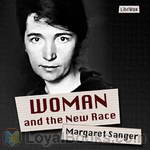 Woman and the New Race
Woman and the New Race
Margaret Sanger was an American sex educator and nurse who became one of the leading birth control activists of her time, having at one point, even served jail time for importing birth control pills, then illegal, into the United States. Woman and the New Race is her treatise on how the control of population size would not only free women from the bondage of forced motherhood, but would elevate all of society. The original fight for birth control was closely tied to the labor movement as well as the Eugenics movement, and her book provides fascinating insight to a mostly-forgotten turbulent battle recently fought in American history. | |
By: Hippolyte Taine (1828-1893) | |
|---|---|
 The Ancient Regime
The Ancient Regime
| |
 The Modern Regime, Volume 1
The Modern Regime, Volume 1
| |
 The Modern Regime, Volume 2
The Modern Regime, Volume 2
| |
By: Francis Key Howard (1826-1872) | |
|---|---|
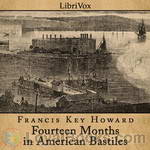 Fourteen Months in American Bastiles
Fourteen Months in American Bastiles
Francis Key Howard recounts in this book his life as a political prisoner of the United States. He points out that he was held captive at the same location where his grandfather was inspired to write the national anthem about the "land of the free," which makes a very stunning contrast. The sufferings that were imposed on him by the Union forces had the effect of solidifying his determination to resist unjust governmental dictates. (Introduction by Katie Riley) | |
By: Elizabeth Cady Stanton (1815-1902) | |
|---|---|
 History of Woman Suffrage, Volume I
History of Woman Suffrage, Volume I
| |
By: Hippolyte Dreyfus-Barney (1873-1928) | |
|---|---|
 The Universal Religion: Bahaism - Its Rise and Social Import
The Universal Religion: Bahaism - Its Rise and Social Import
“Bahaism is not a new religion,” writes Hippolyte Dreyfus-Barney, “It is religion renewed… it does not pretend to represent the whole Truth; on the contrary, it recognises Truth in fundamental principles which are the basis of all former dispensations, and which for that very reason form the standpoint of concord too long lost sight of. And it requires people to renounce ancient superstitions, to abandon the dead letter in order to be penetrated by the living and vivifying spirit, then by... | |
By: Queen of Great Britain Victoria (1819-1901) | |
|---|---|
 The Letters of Queen Victoria : A Selection from Her Majesty's Correspondence between the Years 1837 and 1861 Volume 1, 1837-1843
The Letters of Queen Victoria : A Selection from Her Majesty's Correspondence between the Years 1837 and 1861 Volume 1, 1837-1843
| |
By: August Bebel (1840-1913) | |
|---|---|
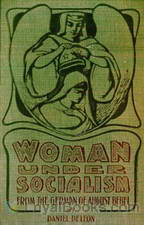 Woman under socialism
Woman under socialism
| |
By: Imbert de Saint-Amand (1834-1900) | |
|---|---|
 Marie Antoinette and the Downfall of Royalty
Marie Antoinette and the Downfall of Royalty
Paris in 1792 is no longer what it was in 1789. In 1789, the old French society was still brilliant. The past endured beside the present. Neither names nor escutcheons, neither liveries nor places at court, had been suppressed. The aristocracy and the Revolution lived face to face. In 1792, the scene has changed."France was now on the verge of the Reign of Terror (la Terreur), the violent years following the Revolution, and this book chronicles the terrible period of French history which culminated in the proclamation: "Royalty is abolished in France... | |
By: Thomas W. Rolleston (1857-1920) | |
|---|---|
 Ireland and Poland A Comparison
Ireland and Poland A Comparison
| |
By: John Evelyn (1620-1706) | |
|---|---|
 An Apologie for the Royal Party (1659); and A Panegyric to Charles the Second (1661)
An Apologie for the Royal Party (1659); and A Panegyric to Charles the Second (1661)
| |
By: Jefferson Davis (1808-1889) | |
|---|---|
 Rise and Fall of the Confederate Government, Volume 1a
Rise and Fall of the Confederate Government, Volume 1a
The Rise and Fall of the Confederate Government (1881) is written by Jefferson Davis, former President of the Confederate States of America during the American Civil War. Davis wrote the book as a straightforward history of the Confederate States of America and as an apologia for the causes that he believed led to and justified the American Civil War. Davis spared little detail in describing every aspect of the Confederate constitution and government, in addition to which he retold in detail numerous military campaigns... | |
By: Jefferson Davis (1808-1889) | |
|---|---|
 Speeches of the Hon. Jefferson Davis, of Mississippi
Speeches of the Hon. Jefferson Davis, of Mississippi
| |
By: Émile Faguet (1847-1916) | |
|---|---|
 The Cult of Incompetence
The Cult of Incompetence
| |
By: Joseph Hall (1574-1656) | |
|---|---|
 Ideal Commonwealths
Ideal Commonwealths
| |
By: Maria W. Stewart (1803-1879) | |
|---|---|
 Meditations from the Pen
Meditations from the Pen
Maria W. Stewart was America's first black woman political writer. Between 1831 and 1833, she gave four speeches on the topics of slavery and women's rights. Meditations From The Pen of Mrs. Maria W. Stewart—published in 1879 shortly before her death—is a collection of those speeches as well as her memoir, some meditations and prayers. They are political, poetical and sermon all at the same time; but in the mileu in which she lectured, they were a critically important part of the abolitionist movement years before the contributions of others such as Frederick Douglass and Sojourner Truth... | |
By: Margaret Fuller (1810-1850) | |
|---|---|
 Woman in the Nineteenth Century and Kindred Papers Relating to the Sphere, Condition, and Duties of Women
Woman in the Nineteenth Century and Kindred Papers Relating to the Sphere, Condition, and Duties of Women
Margaret Fuller (1810-1850) was an American feminist, writer, and intellectual associated with the Transcendentalist movement. Her book Woman in the Nineteenth Century (1845) is considered the first major feminist work in the United States. Her life was short but full. She became the first editor of the transcendentalist journal The Dial in 1840, before joining the staff of the New York Tribune under Horace Greeley in 1844. By the time she was in her 30s, Fuller had earned a reputation as the best-read person in New England, male or female, and became the first woman allowed to use the library at Harvard College... | |
By: Franklin D. Roosevelt (1882-1945) | |
|---|---|
 Franklin Delano Roosevelt's First Inaugural Address
Franklin Delano Roosevelt's First Inaugural Address
| |
 State of the Union Address
State of the Union Address
| |
By: Enrico Ferri (1859-1929) | |
|---|---|
 Socialism and Modern Science (Darwin, Spencer, Marx)
Socialism and Modern Science (Darwin, Spencer, Marx)
| |
By: Edward M. House (1858-1938) | |
|---|---|
 Philip Dru: Administrator
Philip Dru: Administrator
Philip Dru: Administrator: a Story of Tomorrow, 1920-1935 is a futuristic political novel published anonymously in 1912 by Edward Mandell House, an American diplomat, politician and presidential foreign policy advisor. His book's hero leads the democratic western U.S. in a civil war against the plutocratic East, and becomes the dictator of America. Dru as dictator imposes a series of reforms that resemble the Bull Moose platform of 1912 and then vanishes. | |
By: Alfred W. Pollard (1869-1948) | |
|---|---|
 The History of England - a Study in Political Evolution
The History of England - a Study in Political Evolution
| |
By: Richard W. Church (1815-1890) | |
|---|---|
 Bacon
Bacon
This investigation of Bacon the scholar and man of letters begins with a look at the early days ang progresses to his relationships with Queen Elizabeth and James I. It includes accounts of his positions as solicitor general, attorney-general, and chancellor. The book concludes with Bacon's failure, his overall philosophy, and summaries of his writings. | |
By: John Spargo (1876-1966) | |
|---|---|
 Socialism A Summary and Interpretation of Socialist Principles
Socialism A Summary and Interpretation of Socialist Principles
| |
 The Common Sense of Socialism A Series of Letters Addressed to Jonathan Edwards, of Pittsburg
The Common Sense of Socialism A Series of Letters Addressed to Jonathan Edwards, of Pittsburg
| |
By: Ralph Centennius | |
|---|---|
 The Dominion in 1983
The Dominion in 1983
| |
By: John T. Morse (1840-1937) | |
|---|---|
 John Quincy Adams
John Quincy Adams
This biography contains three main sections. the first covers Adams's early years and his time as a diplomat--both in America and overseas. The second tells of his two careers as Secretary of State and President. The last involves his years in the House of Representatives. | |
By: Howard B. (Howard Benjamin) Grose (1851-1939) | |
|---|---|
 Aliens or Americans?
Aliens or Americans?
| |
By: Tommaso Campanella (1568-1639) | |
|---|---|
 City of the Sun
City of the Sun
A dialogue between a Grandmaster of the Knights Hospitallers and a Genoese Sea-captain, about the latter's voyage to a utopian city. | |
By: George Washington (1732-1799) | |
|---|---|
 State of the Union Address
State of the Union Address
| |
By: Justin McCarthy (1830-1912) | |
|---|---|
 History of the Four Georges and of William IV, Volume 3
History of the Four Georges and of William IV, Volume 3
In Volume III of this series on the Hanoverian Kings, Justin McCarthy is joined by his son, Justin Hartly McCarthy, a liberal Irish MP like his father. Together they bring to life, poor stubborn George III, the outrageous radical, John Wilkes, the rebellious American Colonies, great-hearted Charles James Fox, the Gordon Riots which set London ablaze, Edmund Burke, Britain's problematic Indian policy, and the brave, enigmatic Younger Pitt, who faced national fears of the spread of revolution across the Channel from France and then confronted the imminent threat of invasion by the armies of Napoleon. | |
By: Nathaniel W. Stephenson (1867-1935) | |
|---|---|
 Abraham Lincoln and the Union; a chronicle of the embattled North
Abraham Lincoln and the Union; a chronicle of the embattled North
| |
By: Alexander Johnston (1849-1889) | |
|---|---|
 American Eloquence, Volume 1 Studies In American Political History (1896)
American Eloquence, Volume 1 Studies In American Political History (1896)
| |
By: Albert Bushnell Hart (1854-1943) | |
|---|---|
 Formation of the Union, 1750-1829
Formation of the Union, 1750-1829
| |
By: Gerald Stanley Lee (1862-1944) | |
|---|---|
 The Ghost in the White House
The Ghost in the White House
| |
By: Edward Potts Cheyney (1861-1947) | |
|---|---|
 American Nation: a history — Volume 1: European Background of American History, 1300-1600
American Nation: a history — Volume 1: European Background of American History, 1300-1600
| |